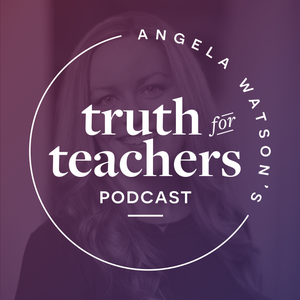
Angela Watson's Truth for Teachers
Angela Watson
- 17 minutes 16 secondsEP299 A spring cleaning classroom guide: what if you didn’t need all that STUFF to teach well?
Do you refuse to throw anything out because you MIGHT need it one day, or find yourself holding on to worthless stuff “just in case” you need it?
In this episode, I’ll share 10 things you can get rid of in your classroom this spring to make space for what you actually need and use.
And, I’ll help you establish a mindset of abundance rather than scarcity, so you can approach spring cleaning with a perspective that will help you feel good rather than apprehensive about getting rid of the things you worked so hard to accumulate:
- I like to streamline and simplify how my classroom runs.
- I don’t keep things I don’t really need.
- I could still teach well with a fraction of the materials I’ve accumulated.
- If there is something that I need later and don’t have, I trust that I will be able to find it again, or borrow it, or be able to do without it just fine.
- The foundation of my classroom is my energy, enthusiasm, and know-how, not my stuff.
- I feel good about clearing away the things that drain my energy and enthusiasm by creating a cluttered, disorganized work space.
- I can let go of things I don’t need in order to make space for things I do.
Click here to read the transcript and participate in the discussion.
14 April 2024, 4:00 pm - 27 minutes 57 secondsEP298 Clock out confidently: 5 tips to get out the door at contract time (with June Link)
This episode features a sneak peek from one of the upcoming 40 Hour Teacher Workweek Online Summit sessions. You’ll hear from a teacher named June Link, whose session is called, “Clock out confidently: 5 tips to get out the door at contract time.”
In this episode, June shares some helpful principles and mindset shifts, along with the exact process she used to carve out time for a new demand in her workload. June and her colleagues were supposed to implement a new socio-emotional learning curriculum, but needed to find time to explore it, write lesson plans, and figure out how to integrate the new materials into everything else they were doing.
June shares how she estimated how much preparation time she’d realistically need in order to implement this new curriculum, which was 10 hours. Then she explains how she made time for that work during her contractual hours, instead of taking the new curriculum home to figure out on the evenings or weekends.
Listen in to learn about that experiment and more.
Then, save your spot for the 40 Hour Teacher Workweek Online Summit:
✅ 30+ presentations
✅ Opening and closing keynotes by 40 Hour founder Angela Watson
✅ All presenters are current K-12 classroom teachers
✅ No fluff, filler, or pitches: each session is just 15-20 minutes long
✅ Chat with other teachers during the live sessions and get personalized advice
Sign up for the free live Elementary Summit April 5th-6th
Sign up for the free live Secondary Summit April 12th-13th
If you can’t attend live or the event has already passed by the time you see this, you can purchase forever-access to all the sessions (both elementary and secondary), plus get time-stamped transcripts, note-taking guides, and all the presentation links and templates in one document so that you can reference them easily. Forever-access is just $19, and helps cover the cost of running this event and compensating the teachers who share their ideas.
Thank you for your support, and for spreading the word about this event!
31 March 2024, 4:00 pm - 7 minutes 5 secondsJoin us for the FREE 40 Hour Teacher Workweek Online Summit in April
It's the only event focused entirely on saving teachers TIME! Learn from current K-12 teachers as they share their best tips for working more effectively, efficiently, and enjoyably.
The 40 Hour Teacher Workweek program is an online course I first created in 2015 (with a total update in 2020), and we’ve now had tens of thousands of teachers complete the course.
With so many different personality types and teaching contexts, the amount of new ideas to spring out of the course was inevitable. I’ve always been impressed by the tweaks, offshoots, extensions, and transformations teachers have done as they’d made my ideas their own. The Summit is an opportunity for you to learn more about them and their phenomenal work!
The 40 Hour Teacher Workweek Online Summit this April features:
- Opening and closing keynotes by 40 Hour founder Angela Watson (that's me)
- 30+ presentations by current K-12 classroom teachers
- No fluff, filler, icebreakers, or sales pitches
- Each session is just 15-20 minutes long
- The ability to chat with other teachers during the live sessions to get personalized advice
This event is entirely online, completely FREE, and beneficial for all K-12 teachers!
Some presenters will take you on a video tour of their classrooms to share organizational tips and classroom routines. Others will screen share their way through tutorials of how they organize digital files, manage assessment, or plan lessons. Still others will give a fast rundown of all their best timesaving tips for grading, differentiation, email, and more.
You can join us LIVE for FREE in April:
Sign up for the free live Elementary Summit April 5th-6th
Sign up for the free live Secondary Summit April 12th-13th
If you can’t attend a session or want to watch and rewatch at your convenience, the Forever Access Pass will get you all the recordings, plus a notetaking guide, summary of key ideas for each session, full time-stamped transcripts, and special bonuses. It’s just $19 right now (the price will increase once the event begins).
Your purchase of the Forever-Access Pass helps me recover some of the costs of running this as a free event and paying our presenters. Thank you for your support!
Questions? Check out the FAQ here.
Please share this free event widely with teacher friends and colleagues! Just send folks to join.40htw.com/summit.
24 March 2024, 4:00 pm - 26 minutes 37 secondsEP297 Feedback first: How 2 different teachers help students focus on learning, not grades
Teachers spend so much time giving feedback to students, but often kids don’t internalize it. They tune out the carefully-crafted written comments on their work, briefly register the grade they earned, and move on.
So how can we help students care about improving their skills and take time to reflect deeply on their learning?
In this episode, you’ll hear how two different teachers have reimagined their instruction to make that possible.
It’s a sneak peek at two sessions from the upcoming 40 Hour Teacher Workweek Online Summit, a FREE event that is focused entirely on saving teachers time, and helping you do your job more effectively and efficiently.
First up, you’ll hear from Andrea Clark. She’s presenting for the elementary Summit in a session called, “Feedback first: Shifting from traditional grading to reflection sessions.” As you’ll hear from Andrea’s description of her fifth graders’ reflection sessions, this is one of the most worthwhile ways she spends her time as a teacher because her students learn so much from it.
Then, you’ll hear from Tanya Jo Woodward. She’s presenting for the secondary Summit in a session called, “7 time savers for IB and AP teachers.” She talks first about how she grades and gives feedback in her high school English classroom while students are working independently on a task or assessment. She also offers tips for helping students self-correct by providing editing stations or peer editing guided sheets.
Like so much of the Summit content, I think you’ll find value in hearing both of these teachers’ experiences, regardless of which grades or content areas you might teach.
Listen in now to hear Andrea and Tanya Jo share the exact processes they’ve used to transform the way their students think about feedback vs. grades.
Then, save your spot for the 40 Hour Teacher Workweek Online Summit.
All sessions are just 15-20 minutes long with no filler, fluff, icebreakers, or pitches. And, all the sessions are presented by current K-12 teachers, with bonus keynotes from me (Angela Watson).
Sign up for the free live Elementary Summit April 5th-6th
Sign up for the free live Secondary Summit April 12th-13th
If you can’t attend live or the event has already passed by the time you see this, you can purchase forever-access to all the sessions (both elementary and secondary), plus get time-stamped transcripts, note-taking guides, and all the presentation links and templates in one document so that you can reference them easily. Forever-access is just $19, and helps cover the cost of running this event and compensating the teachers who share their ideas.
Thank you for your support, and for spreading the word about this event!
17 March 2024, 4:00 pm - 22 minutes 29 secondsEP296 Thinking creatively about tough problems: the power of diffuse thinking for you and your students
Have you ever noticed how breakthroughs often come when you're not actively trying to find a solution? That's diffuse thinking at work: a relaxed state in which creativity flourishes.
On today’s episode of Truth for Teachers, I’ll share how stepping back can lead us forward. It turns out that intense concentration isn't always the best approach to problem solving, and we can instead let our minds wander through the meandering paths of diffuse thinking.
Focused thinking is a bit like a flashlight—intense & concentrated. Diffuse thinking is like ambient room lighting—gentle & expansive. When you (or students) can’t concentrate, you can harness the power of diffuse thinking. This shift in mindset from focused to diffuse can spark innovation and creativity.
Listen in to discover how to use diffuse thinking when you've pushed your limits in focused thinking, and harness the power of diffuse thinking overnight during sleep. (Your dreams can be a powerful tool for problem-solving, too!)
You’ll also hear how you can teach your students to tap into the power of diffuse thinking. I’ll share how to incorporate "thinking walks" into your instruction, try skygazing with students as a productive mental break, prime students for their next lesson with a question that requires diffuse thinking.
Click here to read the transcript and participate in the discussion.
——
If you teach at the secondary level, check out my 10 lesson unit on Focused Attention. It includes a lesson on harnessing the power of diffuse thinking which takes just 15-20 minutes to implement. The resource has slides you show to your class which explain everything for you and guides you through the activities, including a student journal page that helps kids reflect on the topic. In this unit, students will also learn that it’s okay to struggle with focusing their attention, and learn how to:
- Take productive breaks from concentration
- Create healthy phone habits and manage distractions
- Use movement to do better focused work
- Build concentration stamina
- Tolerate and push through boredom and procrastination
Download the PDF brochure about Finding Flow Solutions to share with your administrators and get school funding for the curriculum.
3 March 2024, 5:00 pm - 29 minutes 24 secondsEP295 Can banning phones in school help solve the youth mental health crisis? (with Dr. Jean Twenge)
There has been a significant increase in mental health issues among young people in America since 2012, including anxiety, depression, self-harm, suicide attempts, and suicide. Contrary to popular belief, these trends started before the pandemic, with rates of major depression among teens doubling between 2011 and 2019. Girls and young women are more likely to experience these issues, and the gender gap has been widening.
The introduction of smartphones and social media around 2012 is believed to be a major factor in the decline of mental wellbeing, as it has led to less face-to-face interaction, increased sleep deprivation, and constant exposure to social media.
Dr. Jean Twenge has conducted extensive research in this area. She’s a renowned psychologist and scholar who specializes in generational differences and technology based on a dataset of 39 million people, and has published more than 180 articles and books.
In our conversation, Jean emphasizes the need for conversations about healthy phone and screen habits, as well as the importance of setting clear rules and boundaries for phone use.
We talk extensively about getting student and parent buy-in around Jean’s recommendation that cell phones be banned in school from bell-to-bell, including during lunch time and breaks. Jean asserts that the research supports this policy, and emphasizes that it should be school-wide and not left to individual teachers to enforce.
Despite the challenges, we discuss our hopes for Gen Z and what makes Jean optimistic about the future. She encourages educators to take the mental health crisis seriously and understand that it is not just our perception or feeling that something is wrong.
Her challenge is for educators to help students understand the love-hate relationship they have with their phones, and provide structure and clear rules to help them navigate technology in a healthy way.
Click here to read the transcript and participate in the discussion.
18 February 2024, 5:00 pm - 32 minutes 8 secondsEP294 What does it mean to “teach like yourself’ in 2024? (with Dr. Gravity Goldberg)
“Making a conscious and intentional effort to tap into your own personal power and being courageous” is the way today’s guest defines “teaching like yourself.”
I’m talking with Dr. Gravity Goldberg, whom you might remember from a 2019 interview I did, which ended up being one of the most downloaded Truth for Teachers episodes ever. It’s Episode 171, called “Teach like yourself: Why YOU are the person your students need most.”
Gravity has over 20 years of teaching experience, including positions as a science teacher, reading specialist, third grade teacher, special educator, literacy coach, staff developer, assistant professor, educational consultant, and yoga teacher. Gravity holds a B.A. and M.Ed. from Boston College and a doctorate from Teachers College. As the founding director of Gravity Goldberg, LLC she leads a team that offers side-by-side coaching and workshops that focus on teachers as decision-makers and student-led instruction.
Since our last conversation, Gravity — who has authored 9 books on teaching — has released a new title called Active Learning: 40 Teaching Methods to Engage Students in Every Class and Every Subject, which she co-wrote with the late Barry Gilmore.
We touch a bit on that book and what Gravity’s working on now, but I thought of this conversation as a “Teach Like Yourself, Revisited”. I wanted to know how her thinking has changed around this topic, and the role authentic teaching plays now. Listen in as we discuss:
- How “teaching like yourself” (making a conscious and intentional effort to tap into your own personal power and being courageous) is more important now than ever
- What Gravity has learned about authentic teaching and learning since publishing her book on that topic Has she changed her mind on anything? What would she add?
- How teachers can integrate engagement strategies in a way that feels authentic and meaningful, rather than just tossing something into their instructional day because they think (or are told) they should
- The impact of authenticity on students, and specific, practical ways we can make sure students are able to be their true, authentic selves in the classroom
Click here to read the transcript and participate in the discussion.
4 February 2024, 5:00 pm - 24 minutes 31 secondsEP293 When students don’t want to think for themselves or put in effort, try this.
Do you feel like self-advocacy among students is a pervasive problem? As in, if students don’t know what to do, they won’t ask questions or seek out more information … they’ll just sit there and do nothing. If something is challenging, they don’t seem to be interested in improving their skills, or learning for the sake of learning. They just give up.
In response to this, many teachers feel like they have to work harder than their students are working. They have to keep going the extra mile to make lessons personalized and engaging and put all these additional supports and interventions in place to help students be successful, all while many of their students are doing the bare minimum.
I’ve spent a lot of time over the past few years exploring this phenomenon, and why it’s becoming more and more common. The more that I learn about student disengagement, the more I am convinced that the solution is NOT to put the onus on teachers to make their lessons more engaging and personalized. An amazing lesson isn’t going to get through to a kid who’s not willing to engage in any mental effort.
Is it possible to teach kids how to take initiative and persevere through difficult tasks?
Absolutely. I’ll share what I’ve learned in this podcast episode.
I’m also sharing 2 free resources for implementing the practices in this episode with your students:
- Attend a free online training with me!
- I’m conducting two in February, one for middle school teachers and one for high school teachers. Both are designed to help you reimagine student engagement in your classroom, and rethink what might be possible for your students. A replay link will be sent to everyone who registers, so if you miss it or don’t see this podcast until it’s over, catch the replay by signing up at FindingFlowSolutions.com.
- Download a free 5 lesson unit and try it out with your students
- All 6 high school units and 4 of the middle school units in the Finding Flow curriculum are ready now. The first unit, called Foundations of Flow, can be accessed for free. Get the free unit and see what else is available here: https://shop.truthforteachers.com/collections/finding-flow-solutions
Click here to read the transcript and participate in the discussion.
21 January 2024, 5:00 pm - Attend a free online training with me!
- 22 minutes 20 secondsEP292 How I'm planning and setting goals this year
I’m back from my sabbatical and excited to share how I used my time off and what I’m planning for 2024! I’m sharing more about my personal daily art practice in December (which I plan to continue) and time with family over the holidays.
I also discuss my approach for the new year, which is flexible intentionality. I want to be deliberate about where I invest my time while holding plans loosely and staying open to necessary adjustments.
Additionally, you’ll hear what I’m working on for 2024, including:
- Why I moved the 40 Hour Teacher Workweek Online Summit to spring instead of summer and how the event is changing this year
- My vision for free online trainings throughout the year on Finding Flow Solutions (my curriculum line to help students manage their focused attention, time, and energy). The first workshops are happening in February for middle and high school teachers!
- The new 40 Hour AI course that will kick off this summer to help you feel confident about streamlining your work via artificial intelligence. Each month throughout the 2024-2025 school year, you’ll spend 30 minutes learning best practices live with me online and 30 minutes afterward experimenting, asking questions, and sharing ideas. Since I’ll have curated the best tools and prompts for you, just this one hour a month of training + experimentation will equip you to trim hours off your workload in a thoughtful, responsible, and ethical way.
- The new option I’m offering for the Truth for Teachers Daily Encouragement podcast. If you want daily audio messages of encouragement from me, you can pay $3.99/month through Spotify OR you can now make a one-time payment of $19.99. Either way, you’ll get access to the entire podcast feed (going back to September) AND new daily episodes from now until that podcast ends on June 7th, 2024.
I’ve got some awesome guests and topics lined up for you here on the bi-weekly Truth for Teachers podcast for 2024, as well. Listen in to hear more about what I’m focusing on. Happy New Year!
Click here to read the transcript and participate in the discussion.
7 January 2024, 5:00 pm - 22 minutes 34 secondsEP291 Creating space this winter for dreaming and radical reimagination
This episode is the last for 2023, and Truth for Teachers will be back in January.
If you want to learn more about my sabbatical process or how you can take one with me on your break, read or listen to episode 244.
I thought carefully about the message I wanted to leave you with for the coming weeks, and sinceI’ve already talked about the logistics of a sabbatical in past years, I thought I’d focus this year not on how to carve out the time or what to do during that time, but on how we can direct our thoughts.
With everything happening in the world and in our schools, this feels like a really important time for what I think of as “radical re-imagination.” This is the ability to imagine the world, life, and institutions not as they are or have been, but in an entirely new way, so that we can bring that imagination into reality.
In this episode, I’ll share:
- Why I think winter is the perfect time for dreaming and visionary thinking
- My beliefs on the inherent value of imagination and why we shouldn’t immediately rush to practical, actionable steps when creating change
- Thoughts on the power of grassroots change and dreaming of a better path to collective action together (rather than waiting for top-down transformation)
- Questions you can ask yourself as we head toward the new year to prompt visionary thinking and help you reimagination your life and work in any area(s) that you’d like
In the stillness of winter, it may look like there’s little activity in the natural world, but that doesn’t mean nothing is happening. The time of rest is essential preparation for the activity of the spring to come. There will be a time for doing … but first, there must be a time for stillness.
You’ll hear from me each morning throughout the month of December on the Truth for Teachers Daily Encouragement podcast, and in the second half of the month when you’re on break, I’ll help you create space for dreaming and radical reimagination through those short 3-5 minute episodes so you keep this idea in the forefront of your mind.
I’ll be back here on the main Truth for Teachers podcast in January, ready to ring in 2024 with you and sharing more resources to help make your imagination a reality.
26 November 2023, 5:00 pm - 53 minutes 49 secondsEP290 The surprising research about how talent is developed (with Dr. Rishi Sriram)
What if there was no such thing as innate talent? That’s the argument my guest today is making: that talent is not a cause, but an outcome. It is cultivated, developed, and learned.
I’m talking with Dr. Rishi Sriram, who serves as Associate Professor of Higher Education & Student Affairs for the Department of Educational Leadership at Baylor University. His research interests include the development of talent and college student retention, engagement, achievement, and learning, and he is currently working on a book about the development of talent.
Rishi has identified what he calls “The 5 Ms to Becoming Great” which we unpack in detail together:
- Mindset (what you believe)
- Myelin (how you learn)
- Mastery (what you do)
- Motivation (how much you care)
- Mentorship (how you are taught)
We also discuss the benefits of productive struggle and its impact on the brain, and how teachers can support students who resist tasks that require a lot of effort and concentration.
Additionally, Rishi offers advice for working with students who don’t appear to be interested in becoming great at anything or have tangible goals for themselves. He shares important information that educators can use to help students pursue greatness and be willing to put forth the effort to increase their talents.
Rishi is a fascinating guest who explains the research around talent in such an engaging, clear, practical way. Listen in to learn more about how to develop your own talents, and support students in becoming great at the things they want to do in life, too.
Click here to read the transcript and participate in the discussion or, join our podcast Facebook group here to connect with other teachers and discuss the Truth for Teachers' podcast episodes.
12 November 2023, 5:00 pm - More Episodes? Get the App
Your feedback is valuable to us. Should you encounter any bugs, glitches, lack of functionality or other problems, please email us on [email protected] or join Moon.FM Telegram Group where you can talk directly to the dev team who are happy to answer any queries.
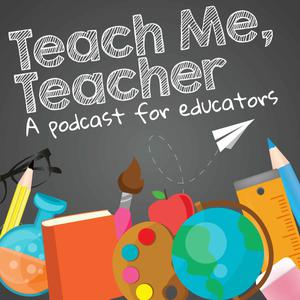 Teach Me, Teacher
Teach Me, Teacher
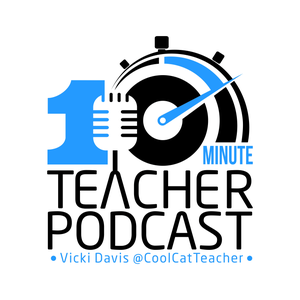 10 Minute Teacher Podcast with Cool Cat Teacher
10 Minute Teacher Podcast with Cool Cat Teacher
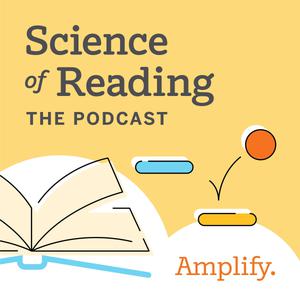 Science of Reading: The Podcast
Science of Reading: The Podcast
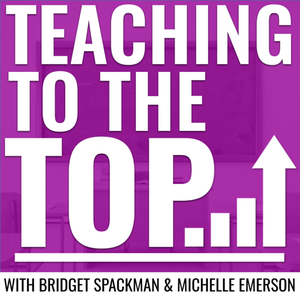 Teaching to the TOP
Teaching to the TOP
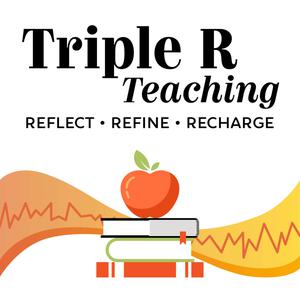 Triple R Teaching
Triple R Teaching
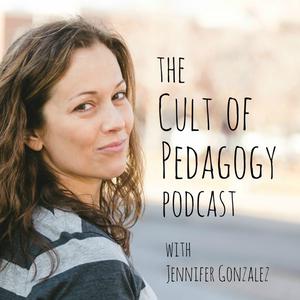 The Cult of Pedagogy Podcast
The Cult of Pedagogy Podcast